At first glance, SEO and PPC seem like they’re from two different worlds. One is organic, built slowly over time. The other is instant, paid, and driven by ad budgets. So, it’s easy to treat them as separate strategies or even competitors. But that thinking misses the mark.
In reality, when used together, PPC and SEO can complement each other in ways that strengthen your overall search presence.
There’s a subtle but powerful connection between the two.
Let’s break that down.
How Can SEO & PPC Work Together to Help Drive More Traffic to Your Website?
PPC Gives You Instant Visibility While SEO Builds Authority
Organic traffic takes time to grow. You publish content, wait for indexing, hope for backlinks, and gradually climb up the ranks. Meanwhile, PPC gives you immediate visibility at the top of the results page.
Now imagine combining both. Your brand appears twice: once in a paid ad, once in the organic listings. That dual presence reinforces credibility. People are more likely to trust you. More likely to click. Even if they don’t convert on the spot, you’ve made an impression.
It’s not either-or. It’s about showing up in both places because people scroll, skim, and notice repetition.
Paid Search Data Helps You Shape Smarter SEO Strategies
Here’s where PPC really starts helping SEO: data.
When you run paid campaigns, you quickly learn which keywords convert. Which phrases get clicks? What types of headlines pull people in? You don’t have to guess what works; you’ve got performance numbers in front of you.
That feedback loop is gold for SEO. Instead of creating blog posts or landing pages based on hunches, you create around what’s already proven to attract attention. Maybe your PPC campaign shows that a long-tail keyword converts better than a broad term. That insight directly informs your SEO content roadmap.
Why spend months waiting to see what works organically when PPC shows you in a week?
PPC Reveals What People Actually Search For
Most digital marketing tools, especially keyword tools are helpful, but they’re still estimates. PPC search term reports, on the other hand, show exactly what users typed into Google before clicking your ad.
That means you can uncover:
- Long-tail variations you hadn’t thought of
- Misspellings or slang that still carry intent
- Questions your content might not yet answer
This isn’t hypothetical data. It’s based on the real behavior of people who were actively searching for something. That makes your SEO efforts more precise. You stop writing “in case someone searches this” content and start building around what people really want.
PPC Helps You Spot Gaps in Your Organic Funnel
Not every user behaves the same way. Some bounce. Some click around. Some convert. With PPC, you can watch how people move through your site in real time. You can see where they drop off, where they hesitate, and where they commit.
That user behavior helps you spot weaknesses in your organic funnel.
If a certain landing page doesn’t convert from paid traffic, it might need stronger copy. Or maybe your blog post ranks but doesn’t drive signups; perhaps it lacks a clear CTA or trust signals. PPC gives you real-world clues that let you adjust those pages for SEO success, too.
Your organic content shouldn’t operate in isolation. Use PPC data to make it sharper.
Brand Awareness from Ads Can Boost Organic CTR
When users are familiar with your name, they’re more likely to click your organic result even if it’s not ranked first.
Paid ads speed up that recognition. The more people see your brand on the SERP, even in an ad, the more likely they are to remember and trust it. Then, when your site shows up organically later, it feels familiar.
This improved click-through rate (CTR) can even help with rankings over time. Google pays attention to engagement signals. More clicks? More time on site? Lower bounce rates? Those factors tell Google your content is worth showing.
PPC gives your SEO content a head start.
You Can Dominate SERP Real Estate
Another big benefit of using both PPC and SEO is real estate. Literally.
When someone searches your product or service, and both your ad and your organic listing appear, you’re pushing competitors further down the screen. You’re occupying more space. And that reduces options for the user.
This dominance signals legitimacy. It’s not just about clicks it’s about perception. Even if a user doesn’t click your ad, they saw it. And then they saw your organic listing. That double exposure matters. It nudges them closer to action even if they don’t realize it.
Paid Helps You Protect Branded Search Terms
Let’s say someone searches for your company by name. You might already rank #1 organically, so you think you don’t need to run a branded ad.
But here’s the problem: competitors can still bid on your brand name. And when they do, their ad shows up first, even if they’re not as relevant.
Running a PPC campaign on your own brand terms gives you control. You own the message. You stay on top. You make sure users land on your best-performing page.
And because branded search traffic tends to be cheaper, the ROI on these ads is often excellent. It’s a small investment that protects your turf and boosts your total click share.
Retargeting Keeps Your Organic Visitors in the Loop
Not every visitor converts on their first visit. Especially in B2B or high-consideration products. But that doesn’t mean they’re gone for good.
If someone found you through organic search, you can use PPC retargeting ads to re-engage them. Maybe they read a blog post but didn’t download your guide. Maybe they visited your product page but never hit checkout.
Now, with a gentle reminder through display ads, social media, or YouTube, you bring them back. That second or third visit might be the one that converts.
This is a classic inbound marketing move, and PPC makes it possible.
Competitive Insights Are Built In
When you run PPC campaigns, you get to peek behind the curtain a bit.
You can see:
- Which competitors show up for your keywords
- What kind of messaging they use
- How they structure their ads and landing pages
These are valuable clues. If everyone else is leaning into a certain topic or phrase, maybe you should explore that in your SEO content. If you see a gap in how they position their features, maybe that’s your angle.
Without PPC, you’re mostly guessing. With PPC, you’re researching in real time.
PPC and SEO Work on Different Timelines, But Share a Goal
It’s true that PPC delivers fast results and SEO takes time; it’s a fact. But they’re both working toward the same thing: visibility, traffic, and conversions.
So why not let them support each other?
Use PPC to:
- Test what works
- Drive immediate leads
- Learn from real-world behavior
Then use SEO to:
- Build long-term rankings
- Create evergreen content
- Capture non-paid traffic sustainably
Together, they form a loop. PPC brings the speed. SEO brings the staying power.
When they’re aligned, your entire search marketing strategy becomes smarter, more agile, and more cost-effective over time.
Final Thought: They’re Better Together
Treating PPC and SEO as silos is like trying to market with one hand tied behind your back. One gives you speed. The other gives you trust. One helps you test and learn. The other helps you build and grow.
It’s not about picking one or the other.
The real payoff happens when you connect them when your paid insights improve your organic strategy, and your SEO content builds trust that makes your ads more effective.
That’s the paid-organic connection. And if you’re serious about getting the most out of search marketing, it’s time to start thinking about them as partners, not rivals.

The Chief Author and Editor at Intothecommerce. As a seasoned expert in digital marketing, I direct the site’s strategic content and ensure every piece meets the highest industry standards. My insights drive our coverage on SEO, paid media, and cutting-edge marketing technology.
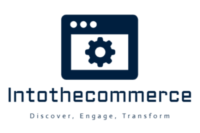
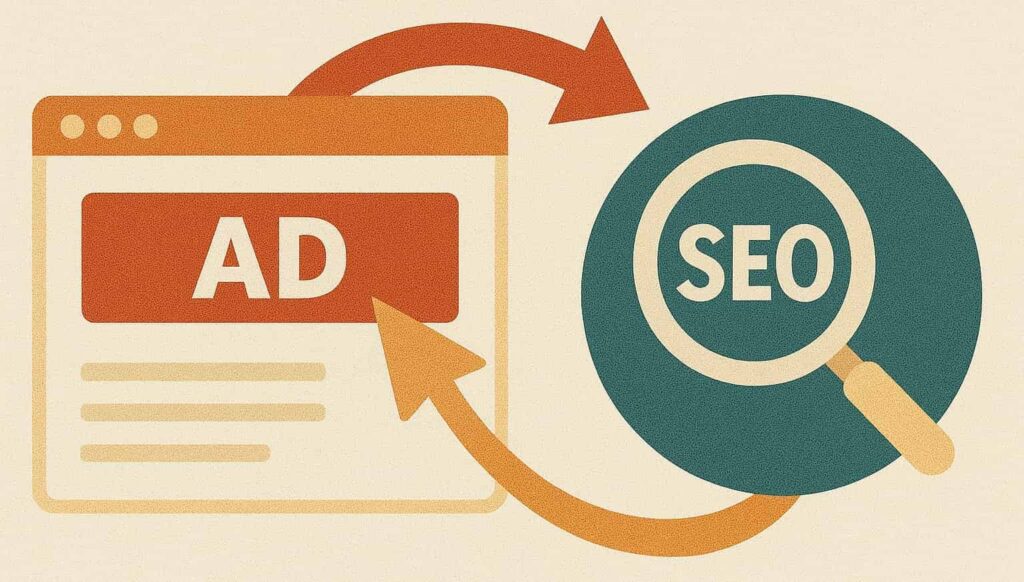
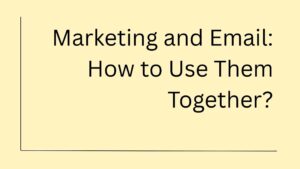
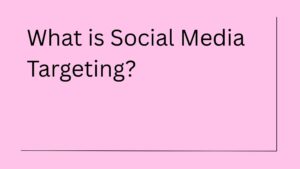
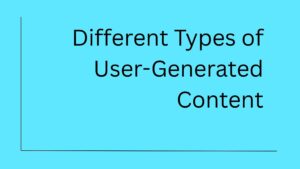
2 thoughts on “How PPC Can Help SEO? The Paid-Organic Connection”
Hey Haribabu,
You have a long way to go in attaining the legend-level commitment in digging any topic deeper, but this tie between the SEO and PPC is outstanding. Ride the wave and win. across.
Great thought. I too believe the PPC campaign in some way maximises the SEO yield. I may not be the expert; it’s what I guess through my experience around marketing.